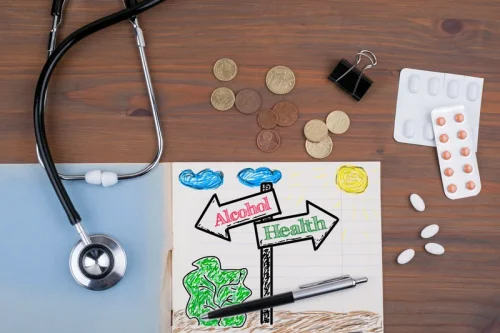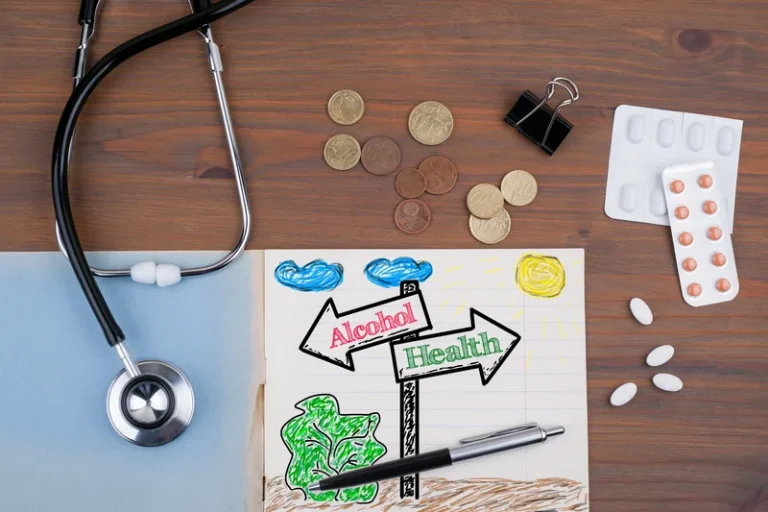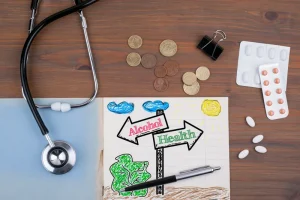
A study published in PLOS Medicine (June 19, 2018) tracked roughly 100,000 people for nearly nine years. Light alcohol drinkers (defined as just one to three drinks a week) were less likely to develop cancer or die prematurely compared to abstainers or “heavy” drinkers. The scientists defined heavy drinkers as those who consumed two to three alcoholic beverages a day. Very heavy drinkers (more than three alcoholic beverages a day) were much more likely to get cancer or die during the study. There is evidence that suggest drinking small amounts of alcohol might have benefits, though.

The 55+ hottest items that are on sale before Amazon Prime Day that you can buy now (yes, *now*)
The average life span of an alcoholic goes down with each drink, increasing the risk for heart and liver problems, cancer and suicide. If you or a loved one is struggling with alcohol addiction, Diamond House Detox can help. As expected, this study confirmed previous research showing that habitual heavy drinkers are more likely to die prematurely.

This American-made DeWALT power tool is 42% off for an early Prime Day deal
Over the long-term, alcoholism affects the liver, the heart, the lungs, and the brain. It’s no wonder that the life expectancy of an alcoholic is at least a decade lower than non-drinkers’. The average lifespan of an alcoholic depends on a variety of factors, including the individual’s overall health, genetics, and level of alcohol consumption. An alcoholic’s life expectancy tends to be shorter than that of the general public because heavy drinking on a regular and long-term basis can increase the risk of developing several life-threatening diseases and conditions.
Does Drinking Alcohol Raise Your Blood Pressure?
- So it’s as if each unit above guidelines is taking, on average, about 15 minutes of life, about the same as a cigarette.
- People who drink alcohol before operating firearms, rolling stock or automobiles could jeopardize their lives or those around them due to the intoxicating effects of alcohol, which reduce coordination and mental clarity.
- The CDC defines moderate drinking as one drink or less per day for women and two or less for men.
- See what else research says about the relationship between age and drug abuse.
- The definition of light alcohol consumption vs. heavy alcohol consumption is critical to the understanding of the seeming confusion.
Appreciate medication adjustment services and individualized treatment tailored to your needs. Our compassionate and highly trained team of professionals can help you recover from addiction and restore your health. According to the Centers for Disease Control and Prevention (CDC), excessive alcohol use Halfway house shortens people’s lives by 26 years. Data is also suggesting that people’s awareness of alcohol impacts is making a noticeable difference as less deaths are being attributed to alcohol consumption.
Beer Drinking: Life Shortener Or Not?

The Dietary Guidelines for Americans takes a more lenient stance, stating that drinking less is, of course, better while supporting alcohol intake limited to one drink a day. Older people may have an unhealthy reliance on alcohol later in life due to life changes, like the death of a loved one or failing health. These changes can lead to depression, anxiety, loneliness or boredom, which can cause older adults to drink too much. People seem to be taking a greater interest in their health when it comes to alcohol consumption and its impacts. Over the last decade more people have started taking part in Dry January, a commitment to not consume any alcohol for the month.
Liver health
- Alcohol use disorder (AUD) is a chronic disease that affects nearly 14.1 million Americans.
- On average, people who misuse alcohol can expect to live 24 to 28 fewer years than their non-drinking peers.
- In practical terms, it means that people who never drink alcohol have a slightly higher risk of cancer and death than those who indulge occasionally.
- Still, phenomena such as the rising popularity of drug abuse-themed TikTok content indicate that Gen Z isn’t out of the woods yet.
- But Anastasia Jandes, M.D., PharmD, IFMCP, said she doesn’t recommend using that as an excuse to drink.
- If you only occasionally drink, don’t increase your intake for health reasons.
Gen X includes people born at the tail end of the 60s through the start of the 80s, and many unique social phenomena set Gen X apart from Boomers who came before. So-called “latchkey kids” became a hallmark of this generation as parents were increasingly absent and children were left unattended. They could boost their life expectancy by a week if they quit until 5 February and a whole month if they stop until 5 August. By the end of the year, they could have avoided losing 50 how much does alcohol shorten your life days of life, the assessment found.
People

In the coming years, time will tell whether Gen Z can break the pattern of increasing drug use or whether they’ll fall prey to the same substance abuse that has plagued prior generations. Baby boomers were born between 1946 and 1965, following World War II and after the Silent Generation. Members of this generation are now commonly known for their supposed conservatism, but research reveals that they haven’t always been conservative when it comes to drugs. Most notably, baby boomers were one of the first generations to exhibit higher acceptance rates toward drugs and greater susceptibility to substance abuse. Furthermore, consuming just one drink per day increases a woman’s risk of breast cancer by as much as 9%.
“We should always remember that alcohol guidelines should act as a limit, not a target, and try to drink well below this threshold.” The proportion of those who had quit smoking first overtook the level of current smokers in 1982 and has continued to increase steadily since, with some of the fastest increases in quitting over the last decade. According to the survey, more than half (56%) of people who currently smoked in 2023 intended to quit. This is equivalent to 12% of the population, while in Scotland and Northern Ireland smoking rates are slightly higher than the UK average, at just over 13%. Most people are aware of the changes in the brain caused by alcohol, specifically the communication pathways which alter moods, behaviours and coordination.
